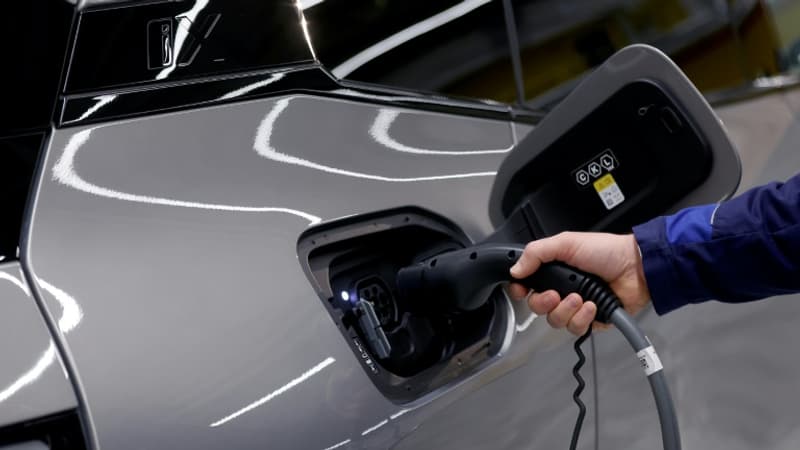Almost three years after the signing of a trade agreement between the United Kingdom and the European Union, Brexit continues to cause a stir. This time it was Stellantis, parent company of Fiat, Peugeot, Citroën and Opel/Vauxhall, which put the file on the table again by threatening on Wednesday to close factories on the other side of the Channel if London and Brussels do not reopen discussions to develop the treaty. negotiated with pain in December 2020.
The manufacturer, which has two main sites across the Channel, says it is concerned about the tightening of “rules of origin” for EV makers from 2024, as provided for in the post-Brexit trade deal.
45% of parts originate from the EU or UK
In concrete terms, these technical regulations stipulate that a car exported from the United Kingdom to the European Union (or vice versa) can be exempt from customs duties as long as the manufacturers can demonstrate that a significant part of the components of the vehicle are native to the United Kingdom. or the European Union.
This threshold is set, for example, at 55% for thermal vehicles. Electric car manufacturers benefit from a tolerance, when it comes to establishing a battery sector in Europe. Currently, they must demonstrate, with supporting documents, that 40% of the value of the parts of their vehicles come from the other side of the Canal or from the block of 27.
But this threshold must increase to 45% as of next January 1 (then to 55% in 2027). Problem: Batteries, which can sometimes be up to half the cost of a vehicle, still come mostly from Asia, Europe still has very few manufacturing plants in service on its soil.
European manufacturers join Stellantis
As a result, European and especially British manufacturers, who export 80% of their vehicles to the EU, will probably not be able to escape customs duties. If the cost of making EVs in the UK becomes uncompetitive and unsustainable,” especially in comparison to cars from Japan and South Korea or made in the EU, the UK business will “go out of business.” Stellantis warnedciting a risk of “significant competitive disadvantage” in electric cars.
The manufacturer told British MPs that it initially thought it could meet the limit of 45% locally produced parts. But inflation has obviously changed the situation.
German manufacturers followed suit. In a press release published this Thursday, the VDA (Union of the German Automotive Industry), which brings together BMW, Mercedes-Benz, Porsche and Volkswagen, estimated that “it is now urgent to adjust” the Brexit agreement because the tariffs would represent ” a significant competitive disadvantage for the European auto industry compared to its Asian competitors in the all-important UK market,” adding that customs duties would also slow down the transition from thermal to electric.
Manufacturers turn to the European Commission
The Association of European Automobile Manufacturers (ACEA) makes the same observation, which requests “the European Commission to extend the period of progressive application of the rules of origin for batteries beyond January 2024, because the construction of a chain fully integrated battery supply chain in Europe is simply not moving fast enough to keep up with more stringent rules.”
Calling the timing of the current rules “unrealistic and counterproductive”, Jaguar Land Rover made the same request. Ford also called for a deferral to 2027, saying moving to the 45% rules-of-origin threshold would add “unnecessary cost to customers who want to go green.”
UK ready to relax rules
From the G7 summit in Japan, British Prime Minister Rishi Sunak said Thursday that Britain is ready to reopen talks on the trade deal with the EU to give carmakers more time. Rules of origin are “an issue that automakers across Europe, not just the UK, have been raising,” he told Bloomberg.
Source: BFM TV


